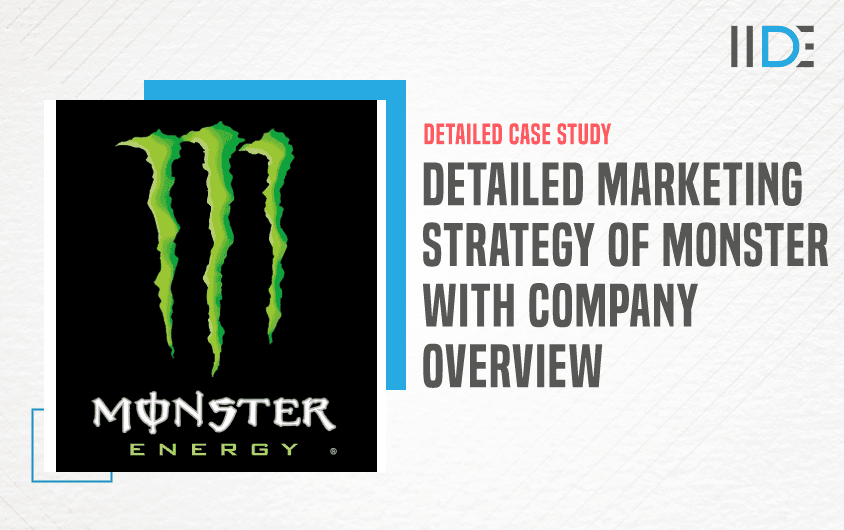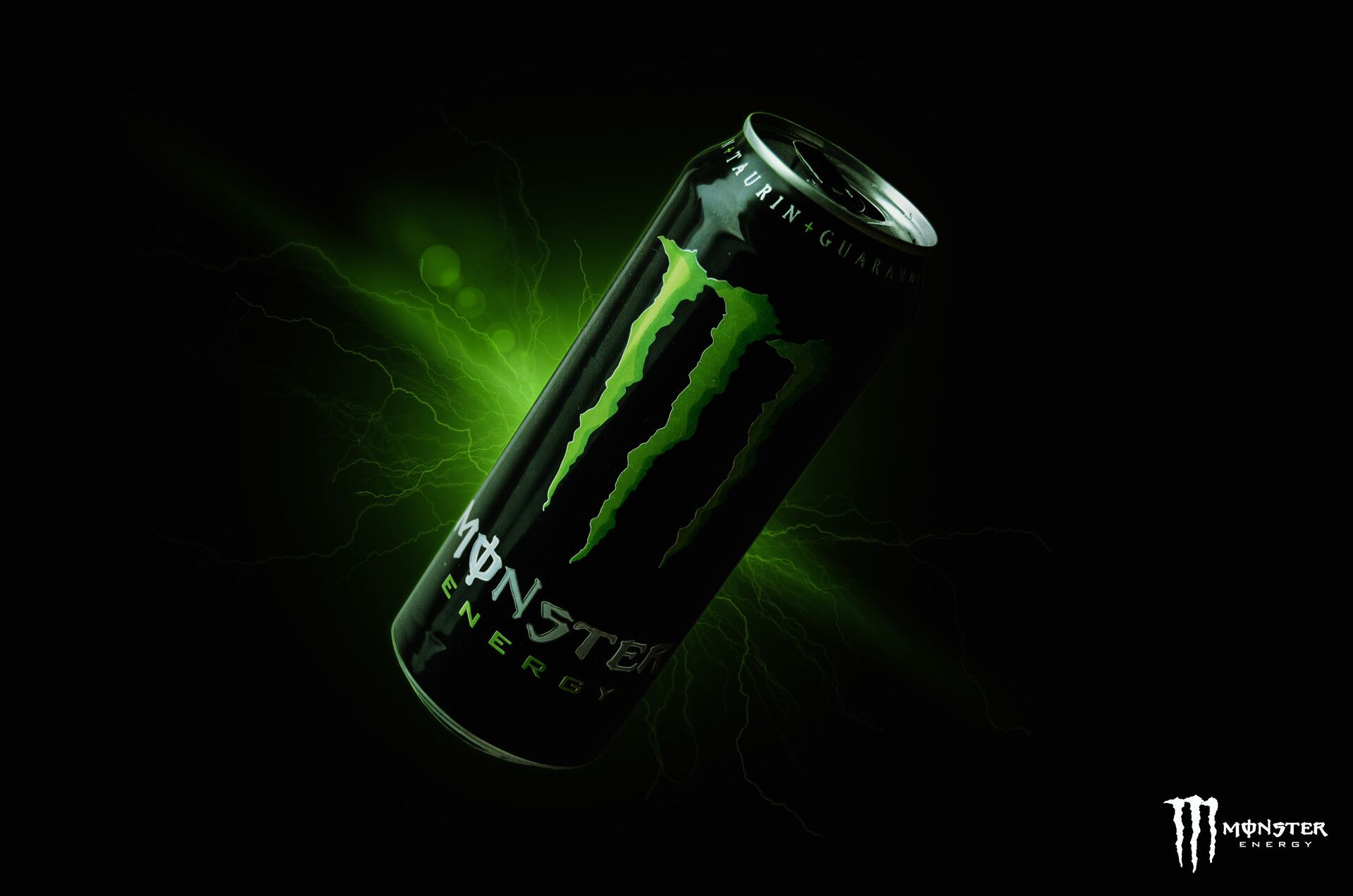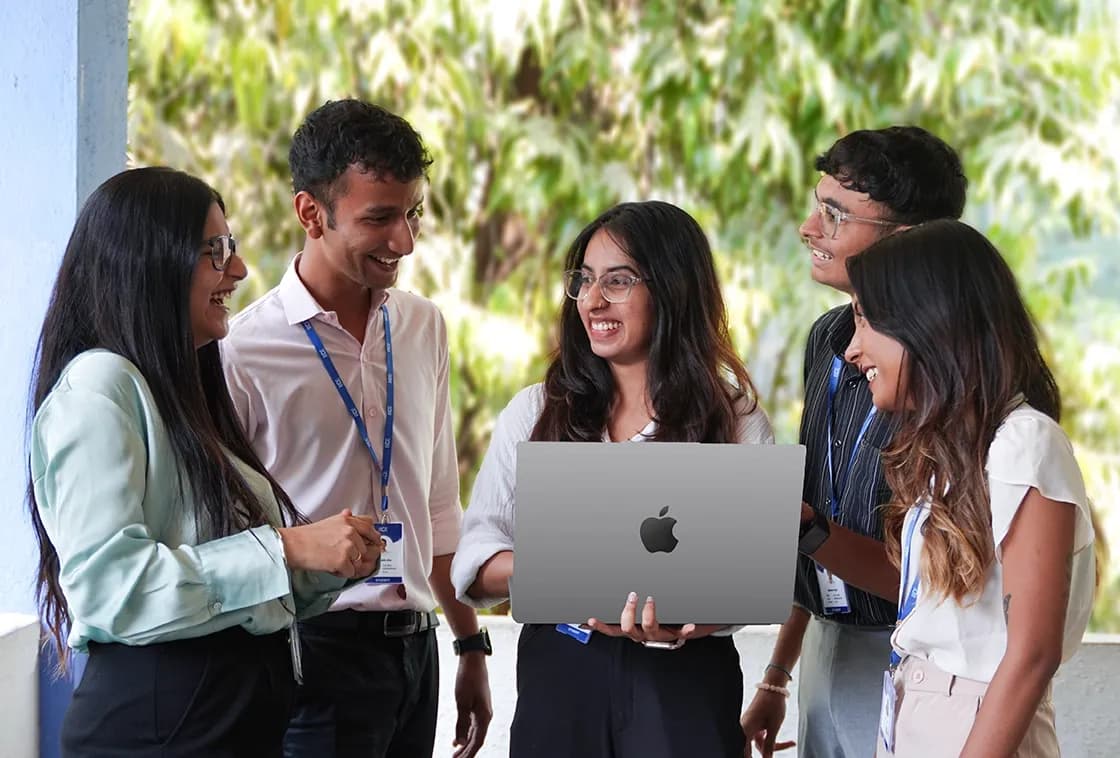
Orginally Written by Aditya Shastri
Updated on Dec 11, 2025
Share on:
Monster Energy’s strategy is fueled by digital marketing, influencer partnerships, and massive event sponsorships.
The brand thrives on social media, targeting youth through engaging content and extreme sports collaborations. Educational campaigns promote energy safety and position Monster as the go-to solution for active lifestyles.
Core marketing channels include Instagram, YouTube, event marketing, and partnerships, all aligned with authoritative transparency and trust.
About Monster Energy
Monster Energy is a leading force in the global energy drink industry, known for its bold, high-adrenaline branding and association with extreme sports, music festivals, and gaming culture. Operating under Monster Beverage Corporation, the brand sells over 150 drink variants across functional and lifestyle categories.

Source: Tommaierle
Founded in 2002 by Hansen Natural Company and rebranded in 2012, Monster is headquartered in Corona, California. Its standout products, Monster Ultra, Java Monster, Reign Total Body Fuel, and Monster Energy Original, have helped solidify its global appeal. A major milestone was its 2015 strategic alliance with The Coca-Cola Company, which holds a 19.3% stake, enhancing Monster’s global distribution capabilities.
Monster has experienced consistent revenue growth, reaching $7.45 billion in trailing 12-month revenue as of Q1 2025, and has sold over 10 billion cans globally in 2024. It employs thousands worldwide and operates in 100+ countries, with top markets in the U.S., Europe, and Asia. Monster holds a 37.4% market share in the U.S., making it a close rival to Red Bull. Other key competitors include Rockstar and Celsius.
Monster’s marketing objectives are focused on maximising youth engagement, enhancing brand recall, and sustaining dominance through influencer-driven campaigns and digital-first strategies.


Learn Digital Marketing for FREE


Marketing Objective or Business Challenge
Monster Energy’s biggest challenge in 2025 is balancing its edgy, high-octane identity with the wellness-focused mindset of Gen Z and millennial consumers.
Known for bold branding and sugary energy drinks, the brand faced mounting pressure to offer healthier, sugar-free options and adopt sustainable messaging.
At the same time, digital engagement waned due to influencer fatigue and growing competition from newcomers like Celsius and ZOA.
Monster’s early 2024 SEO metrics, including rising bounce rates and declining session durations, signalled a need for deeper engagement.
The brand had to retain its cult like energy appeal while evolving its messaging and content to stay culturally relevant, inclusive, and digitally competitive.
Buyers Persona:

Vijay Sharma
New Delhi
Occupation: Software engineer
Age: 27 years
Motivation
Interest & Hobbies
Pain Points
Social Media Presence
Marketing Channels Used by Monster Energy
Monster’s primary channel is digital marketing, driven by social media, influencer partnerships, and esports sponsorships. On Instagram and TikTok, they push visual content around motorsports and new drink launches.
- SEO: Targets high-performing keywords like “zero sugar energy drink,” “esports energy,” and “Monster giveaways.”
- SEM: Google Ads promoting product launches and limited edition drinks.
- Content Marketing: High-octane visuals, user-generated content, and short-form videos.
- Influencer Marketing: Collaborations with Lando Norris, gaming streamers, and UFC athletes.
- Brand-Specific: Their pivot toward sugar-free options was amplified through digital sweepstakes and Call of Duty promotions.
- Emerging Tactics: Monster heavily invests in branded collaborations and cross-platform gamification experiences to capture Gen Z.
Monster Energy Marketing Strategy Breakdown
1. Content Marketing & SEO
Monster Energy’s content strategy thrives on adrenaline. The brand invests in SEO-rich content tied to motorsports, gaming, and sugar-free lifestyle trends. Top-performing blog titles and landing pages include phrases like:
- Zero-sugar energy drink
- Monster Ultra Challenge
- Gaming fuel drink
Each piece is hyperlinked to product or campaign pages to maximise internal linking. They addressed early 2024 technical issues, such as slow mobile load and thin content, which resulted in stronger visit quality, with an average of 5.57 pages per visit. Organic traffic now powers over 60% of their inbound marketing.
Behind-the-scenes videos, athlete interviews, and branded challenge recaps dominate their blog and YouTube content. The global domain authority continues to rise, especially in high-volume regions such as India and Brazil.
2. Influencer Marketing
Monster collaborates with high-visibility names like Formula One’s Lando Norris, UFC fighters, and top gaming streamers. Lando’s zero-sugar launch alone spiked Instagram engagement by 22% in Q1 2025.
What sets Monster apart is real energy in real moments. These aren’t scripted brand plugs, they’re shared training routines, behind-the-scenes vlogs, and even challenge duets on TikTok. This style fosters authenticity and aligns with the lifestyle of its core audience.
In India and Southeast Asia, local sports influencers and gaming creators run localised editions of global campaigns like “Unleash the Beast,” generating thousands of UGC entries and consistent regional traction.
3. Google Ads & Performance Marketing
Monster moved away from traditional paid search in 2025, instead leaning into Performance Max campaigns and YouTube Shorts that showcase limited editions and product drops. Their Google Ads now focus on display retargeting and Call of Duty-themed video teasers.
Gamified sweepstakes and exclusive giveaways, like custom Monster Xbox kits and event tickets, fuel interaction. A June 2025 draw tied to digital code redemptions hit over 240,000 participants globally.
All campaigns are supported by performance dashboards that track session length, bounce rates, and campaign-specific conversion flows.
4. Messaging & Brand Voice
Everything Monster communicates hits one beat—energy. Their tone is bold, visual-first, and unapologetically Gen Z. Campaigns like “Monster Ultra India” pair high-tempo music with sports clips, while slogans like “Unleash the Beast” and “Fuel the Grind” amplify motivation.
Their messaging revolves around five pillars:
- Performance
- Lifestyle
- Zero sugar movement
- Gaming
- Extreme authenticity
From app push alerts to billboard visuals, the messaging is always real, raw, and focused on pushing limits. No buzzwords. No fluff. Just Monster.
Marketing strategy of Oreo demonstrates how playful branding and seasonal campaigns can build a global emotional connection with consumers.
Results & Impact
Monster Energy generated $1.85 billion in Q1 2025 sales, despite market slowdowns, proving that the brand still maintains serious momentum globally.
Their gross profit margin climbed to 56.5% (up from 54.1% YoY), and operating income reached $569.7 million, showing strong business performance.
Website traffic increased by 23%, with SEO now accounting for 38% of total visits. Although organic traffic decreased to 18K/month, the bounce rate improved to 18.47%, indicating that users stayed longer and engaged more.
Their influencer game was intense; the Lando Norris zero sugar campaign boosted Instagram engagement by 22%. In India, the Monster Ultra campaign garnered over 1.4 million YouTube views, supported by a sweepstakes that attracted more than 500,000 entries.
Monster also increased its global search visibility, ranking over 2,500 keywords, particularly in India, the US, and the UK.
With a presence in over 100 countries, double-digit growth in Asia, and a top Gen Z brand recall, Monster continues to dominate the energy drink category.
Marketing strategy of Gillette reveals how performance-focused messaging and consistent innovation secure a loyal user base.
What Worked & Why
Monster Energy’s biggest win in 2025 came from its sharp pivot toward zero-sugar innovation, which met Gen Z’s demand for healthier choices without diluting brand energy. Campaigns like Lando Norris’s limited edition helped elevate visibility and engagement.
Gamified promotions such as Call of Duty code drops and sweepstakes boosted both click-through rates and average session duration. Monster also succeeded in hyperlocal SEO targeting with India leading global search volumes and traffic growth.
Its influencer ecosystem, from global athletes to regional creators, strengthened authenticity and emotional connection. This multi-layered strategy, paired with visually bold content and motivational messaging, kept Monster distinct in a cluttered category.
What Did Not Work and Why
Not all strategies landed in 2025. The launch of Nasty Beast Monster’s alcoholic line fell short with a 38.1% revenue drop in Q1, suggesting misalignment with their core audience.
Their exit from paid search campaigns followed weak returns, especially in oversaturated digital markets. Additionally, foreign exchange fluctuations reduced global revenue by $ 50.8 million, highlighting the sensitivity to international markets.
Monster’s heavy lean on extreme sports messaging also risked alienating non-sports audiences, limiting broader appeal. Overreliance on male-centric content and inconsistent influencer messaging exposed gaps in inclusivity and campaign control. These are lessons that will guide better segmentation and audience alignment in future campaigns.
Marketing strategy of Puma showcases how bold branding and athlete collaborations reinforce an energetic and youthful brand image.
IIDE Student Recommendations: Key Areas for Brand Improvement
Monster Energy’s momentum is impressive, but there’s massive room to amplify reach, retention, and revenue. These strategic improvements focus on optimising the brand’s marketing engine for sharper positioning, deeper audience connection, and measurable sales growth:
1. Humanise Health Messaging
Key Tactic: Reposition zero-sugar variants with real consumer stories and ingredient transparency.
Why: Countering misconceptions about energy drinks will build trust and attract health-conscious millennials, increasing trial and repeat sales.
2. Activate Women-Focused Marketing
Key Tactic: Partner with female athletes, gamers, and fitness influencers to create content and exclusive merch lines.
Why: Tapping into this underrepresented demographic broadens market appeal and improves brand equity with a fast-growing segment.
3. Expand AR-Based Packaging Engagement
Key Tactic: Integrate gamified AR on cans tied to campaigns or challenges (e.g., TikTok trends, in-app unlocks).
Why: Increases user interaction, session duration, and drives repeat purchases through reward-based engagement.
4. Hyperlocal SEO and Language Content
Key Tactic: Launch regional blogs, influencer reels, and search-optimised content in languages like Hindi and Spanish.
Why: Improves organic discoverability in high-potential markets, such as India and Latin America, driving localised conversions.
5. Build Community on Discord and Twitch
Key Tactic: Launch Monster-branded Discord servers with campaign drops, challenges, and live events.
Why: Reinforces community loyalty among core gamer audiences and boosts participation during product launches.
6. Expand Email Automation with Behaviour Triggers
Key Tactic: Create smart workflows tied to sweepstakes, store locators, and flavour announcements.
Why: Drives conversion from interest to purchase and boosts loyalty with targeted communications.
7. Multi-Niche Influencer Diversification
Key Tactic: Collaborate beyond extreme sports into music, fashion, and lifestyle niches.
Why: Broadens cultural relevance and helps the brand stay visible across trend cycles, increasing top-of-funnel traffic.
By implementing these marketing strategy upgrades, Monster Energy can enhance audience inclusivity, deepen digital loyalty, and significantly increase sales across both emerging and established markets.
Want to Know Why 5,00,000+ Students Trust Us?
Dive into the numbers that make us the #1 choice for career success

MBA - Level
Best For
Fresh Graduates
Mode of Learning
On Campus (Mumbai & Delhi)
Starts from
Mar 23, 2026
Duration
11 Months
Live & Online
Best For
Working Professionals
Mode of Learning
Online
Starts from
Mar 6, 2026
Duration
4-6 Months

Online
Best For
AI Enthusiasts
Mode of Learning
Online
Duration
5 Months

Offline
Best For
12th Passouts
Mode of Learning
On Campus (Mumbai)
Duration
3 Years
Recent Post
Aditya Shastri leads the Business Development segment at IIDE and is a seasoned Content Marketing expert. With over a decade of experience, Aditya has trained more than 20,000 students and professionals in digital marketing, collaborating with prestigious institutions and corporations such as Jet Airways, Godrej Professionals, Pfizer, Mahindra Group, Publicis Worldwide, and many others. His ability to simplify complex marketing concepts, combined with his engaging teaching style, has earned him widespread admiration from students and professionals alike.
Aditya has spearheaded IIDE’s B2B growth, forging partnerships with over 40 higher education institutions across India to upskill students in digital marketing and business skills. As a visiting faculty member at top institutions like IIT Bhilai, Mithibai College, Amity University, and SRCC, he continues to influence the next generation of marketers.
Apart from his marketing expertise, Aditya is also a spiritual speaker, often traveling internationally to share insights on spirituality. His unique blend of digital marketing proficiency and spiritual wisdom makes him a highly respected figure in both fields.